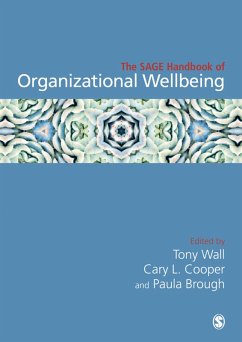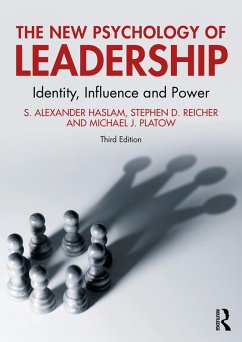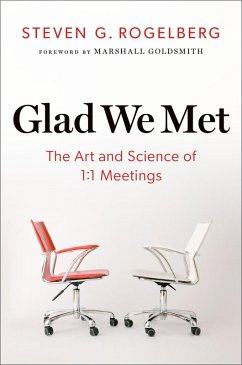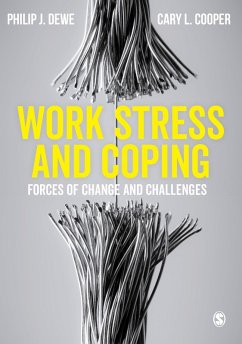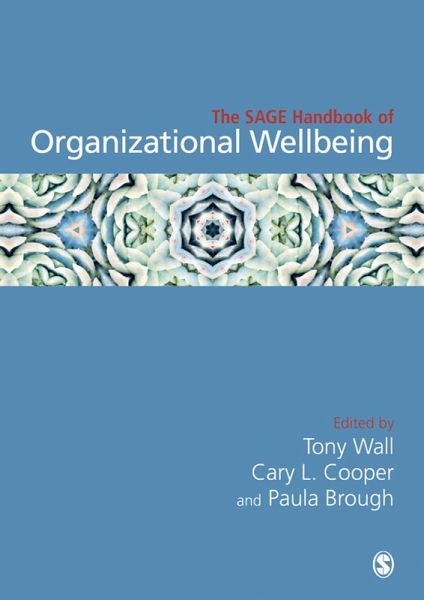
The SAGE Handbook of Organizational Wellbeing (eBook, ePUB)
Versandkostenfrei!
Sofort per Download lieferbar
88,95 €
inkl. MwSt.
Weitere Ausgaben:

PAYBACK Punkte
44 °P sammeln!
The SAGE Handbook of Organizational Wellbeing is a comprehensive and cutting-edge work providing the latest insights into a range of perspectives on organizational wellbeing, as well as highlighting global wellbeing issues and exploring new contexts. Topics covered include: digital working and social media, LGBTQIA+ identifications and work, suicide at work, refugee workers, and mental health. A multi- and inter-disciplinary work, this handbook embraces ideas and empirical work from a range of fields including psychology, business and management, economics, and science. This handbook draws tog...
The SAGE Handbook of Organizational Wellbeing is a comprehensive and cutting-edge work providing the latest insights into a range of perspectives on organizational wellbeing, as well as highlighting global wellbeing issues and exploring new contexts. Topics covered include: digital working and social media, LGBTQIA+ identifications and work, suicide at work, refugee workers, and mental health. A multi- and inter-disciplinary work, this handbook embraces ideas and empirical work from a range of fields including psychology, business and management, economics, and science. This handbook draws together current knowledge whilst also outlining emerging issues and directions, making this an invaluable resource for students and researchers spanning a wide array of disciplines.
Part 1: Theoretical Perspectives
Part 2: International Issues and Contexts
Part 3: Developing Organizational Wellbeing
Part 4: Emerging Issues and Directions
Part 1: Theoretical Perspectives
Part 2: International Issues and Contexts
Part 3: Developing Organizational Wellbeing
Part 4: Emerging Issues and Directions
Dieser Download kann aus rechtlichen Gründen nur mit Rechnungsadresse in A, D ausgeliefert werden.




